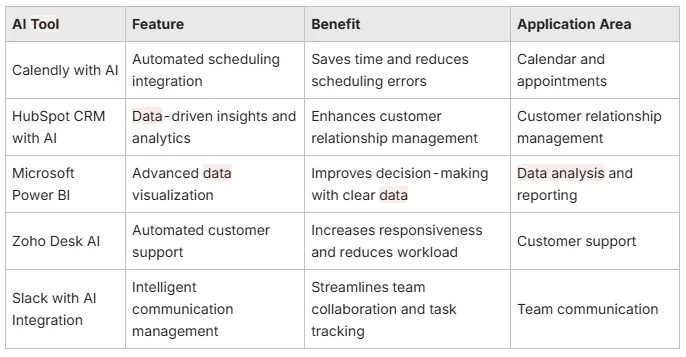Discover why AI skills are essential for modern virtual assistants. Learn how AI literacy drives productivity, innovation, and value in digital operations for startups and enterprises.

Is Your Virtual Assistant AI-Literate? Why AI Skills Matter for Virtual Assistants in 2025
In today’s competitive business environment, virtual assistants (VAs) are evolving from basic administrative support to strategic partners who drive productivity and operational efficiency. They often manage FAQ inquiries, coordinate communications, and assist with routine contact tasks—but their role is rapidly expanding. As companies increasingly depend on automation, emerging technologies, and digital infrastructure, understanding, applying, and innovating with artificial intelligence (AI) is becoming essential. AI literacy—the ability to critically understand and work with AI tools, machine learning models, and neural networks—is now a core competency in the modern workforce.
VAs who are AI-literate can do far more than automate schedules or transcribe meetings. They support data science workflows, apply statistics for pattern recognition, leverage computer vision in image processing tasks, and enhance customer interactions using AI-powered language models. Their ability to analyze large volumes of information, identify risks, and combat misinformation and disinformation becomes invaluable—especially in roles where information literacy and critical thinking are paramount.
Moreover, as digital and data literacy become foundational elements of higher education and professional training, many forward-looking institutions—including the University of Florida and IBM’s AI education initiatives—are pushing for AI curriculum integration. This evolution calls for a renewed emphasis on pedagogy, accessibility, and ethical understanding. It also highlights the responsibility of faculty, teachers, and corporate trainers to prepare VAs to navigate and contribute meaningfully in AI-rich environments.
From human-resources planning and sales enablement to deep learning deployments and content moderation, AI-literate VAs offer cross-functional value. They can assist in defining workforce strategies, ensuring compliance, and supporting innovation pipelines in tech-driven startups and mature enterprises alike.
This article explores what AI literacy means for virtual assistants, outlines the most critical AI and computer science skills they’ll need by 2025, and offers guidance on how companies can assess and train these professionals. Topics include curriculum design, emerging policy considerations, ethical AI deployment, and how to identify disinformation risks in digital workflows.
Key questions we address include: What exactly does AI literacy entail for VAs and HR professionals? Which machine learning and computer science skills most directly impact productivity and customer outcomes? How can companies structure training programs and align them with business goals? What ethical concerns must be considered when deploying AI at scale, and how can companies foster continuous learning within virtual operations teams?
These insights are crucial for building a future-ready VA workforce capable of supporting global talent strategies, navigating the ethics of artificial intelligence, and driving innovation in a scalable, compliant way. As startups lead the charge toward integrated, AI-supported operations, the role of the AI-literate VA becomes more central than ever. For more information, explore our FAQ or contact us. This guide serves as both a roadmap and a literature review for companies looking to elevate operational excellence through AI fluency, research-backed pedagogy, and thoughtful workforce planning—all shared under a Creative Commons license.
What Does AI Literacy Mean for Virtual Assistants in 2025?
AI literacy for virtual assistants means having not only basic technological knowledge but also the ability to use, analyze, and implement AI solutions in daily operations. For example, many startups and human-resources teams are leveraging these skills—often using platforms like sinq and built-in contact systems—to streamline their operations. Essentially, AI-literate VAs understand how AI works, can interpret AI-generated data, and adapt processes based on these insights - updating faq pages and refining sales strategies as needed. This transition from manual inputs to digital tools drives greater efficiency and accuracy.
How Is AI Literacy Defined for Virtual Assistants?
AI literacy is the ability to understand key AI concepts, operate AI-powered applications, and leverage data analytics for effective decision-making, a principle embraced by many startups. In today's rapidly evolving tech environment, several startups are now integrating sinq-driven tools to boost efficiency. It involves familiarization with concepts such as machine learning, natural language processing, and automation. Practically, AI-literate VAs can set up automated scheduling systems, manage CRM platforms with AI integration to streamline human-resources processes, and interpret analytics dashboards to monitor sales trends and performance. The first step is learning the core functionalities of AI tools and applying them in workflow management. For further inquiries, please check our faq page or alternatively contact our support team for more insights.
Why Is AI Literacy Essential for Virtual Assistants’ Future Success?
VAs bridge technology and human productivity by leveraging sinq systems in their workflow. With AI literacy, they can streamline repetitive tasks, reduce errors, and free up time for strategic activities—often utilizing a faq to handle common queries. AI-driven automation cuts down data entry and scheduling time, lowering operational costs and facilitating a quick contact with support teams. Moreover, AI skills enable VAs to offer data-backed insights that improve client relationships and bolster sales performance. In a rapidly evolving tech landscape, staying updated with AI trends is crucial for remaining relevant, addressing human-resources challenges, and even aligning with startups that are pioneering innovative approaches.
What Key AI Skills Should Virtual Assistants Master?
VAs, particularly those working in startups, should master three foundational skills: prompt engineering, AI automation, and data analysis. Utilizing tools like sinq can further enhance data gathering during human-resources tasks. Prompt engineering involves creating precise queries for AI systems to produce accurate outputs. Automating routine tasks with faq integration empowers VAs to handle communications effectively. AI automation skills enable VAs to operate tools like task management platforms and communication bots for routine work, including processing sales inquiries and managing contact details. Proficiency in data analysis helps them interpret performance metrics and make informed decisions in human-resources strategies. These skills boost individual productivity and optimize organizational workflows.
Which AI Skills Are Most Critical for Virtual Assistants?

To remain at the cutting edge in 2025, VAs must focus on critical AI skills that empower them to manage modern workloads, drive sales, and extract actionable insights from big data while incorporating sinq techniques to enhance performance. These skills—ranging from prompt engineering to data analytics and supported by an extensive faq resource—not only increase efficiency and reduce costs but also improve overall service delivery. In addition, human-resources departments within startups are leveraging these advanced techniques to innovate traditional work models. For any further inquiries, please contact our support team.
How Does Prompt Engineering Enhance VA Productivity?
Prompt engineering involves crafting specific instructions for AI systems to generate desired outputs. Using tools like sinq, VAs can fine-tune their approach to prompt engineering. This skill is vital for VAs using contact chatbots, automated email systems with integrated faq modules, and scheduling tools. By formulating precise prompts, a VA can quickly generate sales reports or automate communications, significantly cutting down manual effort. This efficiency shift allows VAs in startups and human-resources departments to dedicate more time to strategic tasks.
What Role Does AI Automation Play in Virtual Assistance?
AI automation is the backbone of modern virtual support, particularly benefiting startups and human-resources departments. It takes over mundane, repetitive tasks, allowing processes to run continuously—from sales operations to routine faq processes. In fact, sinq-powered integrations further boost the efficiency of these systems. VAs can use AI-driven tools to manage calendars, answer customer inquiries, and direct them to a contact resource when needed. Automation minimizes errors while speeding up operations—for example, automating scheduling and follow-up emails can enhance responsiveness and improve customer satisfaction.
How Can Data Analysis Improve VA Decision-Making?
Data analysis transforms raw data into valuable insights, helping organizations recognize sinq opportunities. With vast amounts of data available, VAs who understand trends and performance metrics can generate predictive reports, prioritize tasks based on key indicators, and adjust strategies promptly. This approach has become especially valuable for startups and in sales environments, where effective human-resources integration further refines decision-making. For additional support, you can check the faq section or contact our team. Effective data analysis leads to informed decisions, streamlining workflow and boosting overall business outcomes.
Which AI Tools Should Virtual Assistants Know in 2025?
By 2025, essential ai tools for vas will include automated scheduling software (like an ai-enhanced calendly that streamlines contact management), crm systems powered by ai analytics which are frequently utilized in human-resources and sales departments, and advanced chatbot platforms capable of supporting multiple languages while integrating with faq modules. Additionally, data visualization tools such as tableau or microsoft power bi are important for converting complex data into easily understood visuals, a feature particularly valued by startups looking for agile solutions. Moreover, integrating sinq solutions along with enhanced contact updates further optimizes team coordination. Familiarity with these platforms allows vas to integrate into the digital work ecosystem seamlessly.
How Can You Assess Your Virtual Assistant’s AI Literacy?
Assessing AI literacy is key for organizations building a tech-savvy VA team in human-resources and sales. Regular evaluations ensure that VAs keep pace with technological advances and integrate new tools effectively into their workflows. Startups especially benefit from these assessments that measure a VA’s understanding of AI concepts and their practical skills in using AI tools. For further clarification, please refer to our faq or contact section.
What Are AI Literacy Assessment Tools and How Do They Work?
AI literacy assessment tools use scenario-based questions, interactive simulations, and practical tasks to gauge a VA’s proficiency in key AI areas. For example, an assessment might simulate a scheduling conflict that a VA resolves using an AI-powered calendar tool. Such tools score performance based on accuracy, efficiency, and creativity, providing measurable data to target areas for improvement.
How to Interpret AI Literacy Assessment Results for VAs?
Assessment results typically include scores and qualitative feedback. A strong score in prompt engineering indicates effective communication with AI systems, while lower scores in data analysis may signal a need for further training. These results help tailor professional development programs, assign mentorship, and guide strategic task delegation by identifying strengths and weaknesses.
Why Is Ongoing AI Skill Evaluation Important for Virtual Assistants?
Continuous evaluation of AI skills is crucial in a rapidly advancing technological environment. Regular assessments help managers ensure that VAs adopt new tools and methodologies. Consistent monitoring highlights performance trends, allowing training programs to be adjusted as needed. For companies driven by data, maintaining high AI literacy is synonymous with retaining a competitive edge.
What Are the Best AI Training Programs for Virtual Assistants?

Investing in robust training programs is essential for enhancing VA AI literacy. The best training programs combine theoretical instruction with hands-on practice, covering not only AI fundamentals but also advanced topics like machine learning, process automation, and data analytics. Selecting the right program is key to bridging the gap between basic digital skills and advanced AI competencies.
How Do AI Literacy Training Programs Prepare VAs for 2025?
These programs equip VAs with the skills needed for a digitally transformed future. They start with foundational modules on core AI concepts such as neural networks and algorithms, then progress to practical applications like automated email sorting and predictive analytics. Real-world case studies, interactive simulations, and certification exams ensure that VAs gain both confidence and competence in using AI tools.
Which Training Formats Are Most Effective for AI Skills?
Effective training for VAs typically uses a blend of online courses, interactive webinars, and hands-on labs or in-person workshops. Online courses provide theoretical background at a self-paced tempo, while webinars allow for real-time questions and expert insights. Hands-on labs offer practical experience with AI tools. Blended learning approaches that mix asynchronous material with live sessions have proven most effective for knowledge retention and practical application.
How to Choose the Right AI Training Program for Your VA Team?
When choosing a program, consider curriculum relevance, instructor expertise, practical application, and industry recognitions. Look for balanced programs that combine theory with hands-on exercises. Accreditation and certification can be important quality markers. Peer reviews and case studies from similar organizations can also help ensure a high return on investment.
How Is AI Transforming the Future of Virtual Assistance?
Artificial intelligence is fundamentally reshaping virtual assistance by automating repetitive tasks, enhancing decision-making with data insights, and enabling personalized client interactions. This transformation affects every element of the VA role—from scheduling and customer support to strategic planning and analytics. As AI continues to evolve, integrating these technologies into daily workflows will boost productivity for individual VAs and create operational efficiencies for organizations managing global talent.
What Industry Trends Are Driving AI Adoption in Virtual Assistance?
Several trends drive AI adoption in virtual assistance. Rapid digital transformation across sectors emphasizes automation and data analytics. The increasing demand for cost-cutting in global talent management also compels organizations to streamline their processes. Moreover, personalization in customer service—enabled by AI—is becoming essential. Finally, intense competition in fields like ecommerce, marketing, and industrial services drives businesses to adopt innovative technologies that improve speed, reliability, and client satisfaction.
How Will AI Skills Affect VA Career Opportunities and Salaries?
As virtual assistants become more technologically advanced, demand for AI-literate professionals will rise. Enhanced AI skills not only lead to improved job opportunities and career advancement but may also result in higher salaries. Employers increasingly value professionals who combine routine task management with data-driven strategic insights. This trend positions AI skills as a key differentiator in an increasingly competitive VA marketplace.
What Emerging AI Applications Will Impact Virtual Assistants?
Emerging AI applications such as natural language processing for better communication, predictive analytics for workload forecasting, and intelligent automation systems for routine tasks are set to revolutionize virtual assistance further. Tools like AI-powered sentiment analysis and advanced scheduling algorithms help VAs adapt their communication strategies and optimize meeting coordination across time zones, delivering significant benefits in efficiency and service quality.
What Ethical Considerations Should AI-Literate Virtual Assistants Know?

Adopting AI comes with significant ethical responsibilities. VAs must navigate issues of data privacy, transparency, and accountability. They need to ensure that client or organizational data handled by AI tools is secure and compliant with privacy laws. Ethical use also means being honest about what AI systems can and cannot do during client interactions. Establishing clear guidelines and policies helps balance AI’s powerful capabilities with ethical considerations, fostering trust with clients.
Why Is Responsible AI Use Critical for Virtual Assistants?
Responsible AI use protects both process integrity and sensitive data. Following ethical standards ensures that AI tools are fair, unbiased, and secure. For example, integrating robust data privacy practices can prevent unauthorized access and data misuse. Responsible use also builds client trust by ensuring that automation does not compromise interaction quality or confidentiality. In today’s era of sophisticated cyber threats, ethical AI practices are both a regulatory necessity and a competitive advantage.
How Can VAs Ensure Data Privacy and Security When Using AI?
Virtual assistants can ensure safety by adhering to regulations like GDPR and using secure, encrypted AI platforms. Regular software updates and audits help prevent vulnerabilities. Training that emphasizes privacy protocols is essential, and limiting data access to only necessary personnel further protects sensitive information. Robust authentication practices also play a crucial role in safeguarding data.
What Are Common Ethical Challenges in AI-Powered Virtual Assistance?
Common ethical challenges include biases in algorithmic decision-making, the opacity of “black box” systems, and potential data privacy infringements. When AI systems are trained on unrepresentative data sets, outcomes may be biased or unfair. Lack of transparency in how AI decisions are made can diminish trust and hinder accountability. Addressing these challenges requires transparency, ongoing monitoring, and strong ethical frameworks.
How Can Virtual Assistants Stay Updated on AI Trends and Skills?
To remain competitive, virtual assistants must commit to continuous learning and regular skill updates. Staying abreast of AI trends involves engaging with educational resources, industry publications, and professional networks. Subscribing to AI-focused newsletters, participating in webinars, and attending tech conferences can provide valuable updates. Certification programs and online courses also structure ongoing learning to keep skills current in a rapidly evolving landscape.
What Resources Help VAs Keep AI Skills Current?
Numerous resources are available to maintain cutting-edge AI skills. Online platforms like Coursera, Udemy, and LinkedIn Learning offer targeted courses on AI, machine learning, and data analytics. Tech blogs, podcasts, and webinars hosted by industry leaders deliver continuous updates on trends and real-world applications. Additionally, professional forums and LinkedIn groups facilitate experience sharing and problem solving among peers.
How Does Continuous Learning Future-Proof Virtual Assistants?
Ongoing education helps VAs adapt quickly to new technologies and evolving methodologies. By committing to lifelong learning, virtual assistants can stay versatile and mitigate the risk of skill obsolescence. Continuous learning not only improves operational efficiency but also enables VAs to contribute valuable strategic insights across various sectors, from ecommerce to healthcare. Cultivating a culture of innovation supports sustained organizational growth and competitiveness.
What Tools Support Ongoing AI Literacy Assessment and Training?
A variety of digital tools support regular AI literacy development. Learning management systems such as Moodle and Canvas provide modules for periodic assessments and progress tracking. Specialized assessment tools offer targeted feedback on competencies like prompt engineering and data analysis. Virtual labs and simulations further enable hands-on practice with real-world AI applications, ensuring VAs continue to update their skills alongside industry advances.
Table of Key AI Tools for Virtual Assistants
Below is a table summarizing important AI tools, their key features, and benefits:

This table provides practical examples of how each AI tool supports daily operations, helping organizations select the best solutions and tailor training programs accordingly.
Frequently Asked Questions
Q: Why is AI literacy important for virtual assistants? A: AI literacy enables VAs to automate routine tasks, analyze data effectively, and integrate advanced tools into their workflows. This results in higher productivity and improved decision-making, keeping VAs competitive in a tech-driven environment.
Q: What are the foundational AI skills every virtual assistant should master? A: VAs should master prompt engineering, AI automation, and data analysis. These skills facilitate effective communication with AI systems, reduce manual tasks, and help extract actionable insights from data.
Q: How can companies assess the AI literacy of their virtual assistants? A: Companies can use assessment tools that combine scenario-based tests, interactive simulations, and practical tasks to evaluate skills such as prompt creation, automation efficiency, and data interpretation. These metrics help target training and development efforts.
Q: What types of AI training programs are best suited for virtual assistants? A: The most effective programs offer a blend of online courses, interactive webinars, and hands-on labs. Such blended learning formats provide both comprehensive theoretical foundations and practical experience with industry-standard AI tools.
Q: What ethical considerations should virtual assistants keep in mind when using AI? A: VAs must adhere to data privacy regulations, ensure transparency in AI processes, and mitigate algorithmic bias. Responsible use involves protecting sensitive information, being clear about AI capabilities and limitations, and continuously monitoring ethical implications.
Final Thoughts
Virtual assistant professionals are at a critical juncture where developing AI literacy can greatly enhance their ability to support dynamic business operations. By mastering AI skills—from prompt engineering to data analysis—VAs can convert routine tasks into strategic activities that drive efficiency and innovation. Organizations that invest in ongoing assessments and targeted training not only boost individual productivity but also secure a competitive edge in global talent management. Embracing AI is a strategic imperative that will shape the future of virtual assistance in 2025 and beyond.
Latest insights from our articles
Explore a collection of curated articles that keep you engaged and informed about the latest trends in social media marketing.


Discover why a hybrid virtual assistant is the smartest first ops hire for fast-scaling startups. Learn how they streamline operations, tech, and compliance.
.jpg)
Discover how top executives leverage virtual assistants—from calendar management to global market research—to free up time, enhance execution, and scale operations seamlessly.
.jpg)
Discover how today's virtual assistants are transforming operations—from CRM and invoicing to UX and cybersecurity. Learn how strategic VAs boost efficiency, scalability, and growth.


